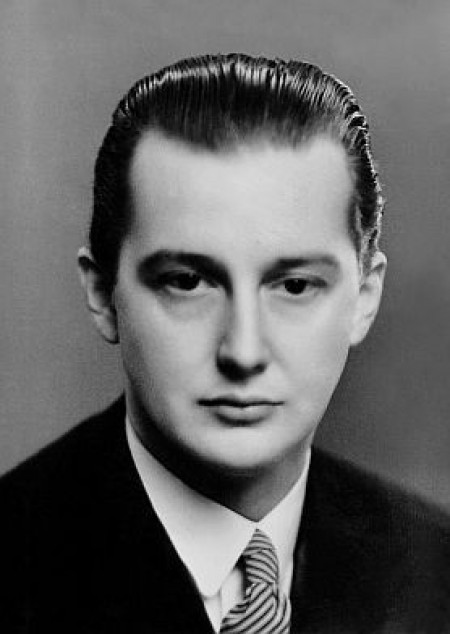
9 April 1912, Sátoraljaújhely -February 1990, United States
Béla Böszörményi-Nagy was one of the most important members of the generation of pianists after Bartók and Dohnányi. In his gymnasium years he showed an intensive interest in both music and the humanities, and thus gained admission to both the Music Academy and the humanities section of Szeged University. At the Music Academy he was initially Imre Keéri-Szántó's pupil, and later on, at the artists' training department, he studied piano with Dohnányi, while also regularly attending Leo Weiner's classes in chamber music and Zoltán Kodály's composition classes. From 1935 for three years he received a Liszt scholarship. In 1937 he received his piano artist's diploma, simultaneously graduating at Szeged as well. In the same year he was appointed to a teaching post at the piano department of the Music Academy; from 1945 to 1948 he was also a member of the Board of the institution.
His teaching method was recalled by his one-time pupil, the pianist Zsuzsa Szabó, as follows: "He was an excellent pedagogue, but at the same time an artist through and through. We experienced in his classes the best: he filled room XVI of the Music Academy with music. It was difficult to get close to this rather reserved personality, but when we sat down at the piano, and he sensed talent in someone, he practically swept that person into the music: he whistled, conducted, played the piano, he made us fly. What we received in these classes, we received for a lifetime."
From the end of the thirties Böszörményi-Nagy was a constant participant in the Budapest and provincial concert life. His Beethoven concerts are particularly memorable; many very positive reviews were published about them. Dénes Bartha, for example, wrote in April, 1942: "This serious young man subjects his personal ambitions to the service of the composition, the highest goal of all performing art, more so than any other of the current pianists. Besides this, he has an absolutely individual, sharply delineated personality, a fortunate mixture of being emphatically drawn to intellectual profundity, accompanied by a stormy, eruptive temperament. All this makes him an excellent Beethoven performer, what is more, the best in Hungary. In order to become an artist of world stature, however, he shall have to tame his tremendous temperament and further develop his sense of tone. But the vast advance that he has already accomplished, from his first pianistic steps to the heights he has already reached, entitles us to high hopes – to hope that Béla Böszörményi-Nagy will one day continue that classically stressed way of playing Beethoven which is Bartók's orphaned intellectual legacy since the great master settled in America."
Six years later, in 1948, at the end of the brief democratic period after the Second World War, Böszörményi-Nagy also left Hungary and, together with his family, moved to Canada. For the next five years he taught at the Toronto conservatoire and university, after which, from 1953 to 1962 was professor at the famous Indiana University in Bloomington. Later he continued his career at the University of Boston, then at the University of North Carolina and as head of department at the Catholic University of Washington. In the meantime he gave regular concerts in many countries in Europe, in Canada and in the United States. He gave the Budapest premier of Bartók's Third Piano Concerto, as well as the original or European premieres of many contemporary compositions. His unusually wide repertoire included sixty concertos, as well as almost all the solo works of Johann Sebastian Bach, Haydn, Mozart, Beethoven, Schubert, Chopin, Brahms, Debussy, Ravel, Bartók, Kodály, Stravinsky, Boulez and Stockhausen. From the middle of the seventies he made regular visits to Hungary: according to his friends, on such visits he always spent long hours in his alma mater, the Music Academy, walking the corridors and looking into the classrooms. He died in the United States, at the age of seventy-eight, in February 1990.
A. R.


